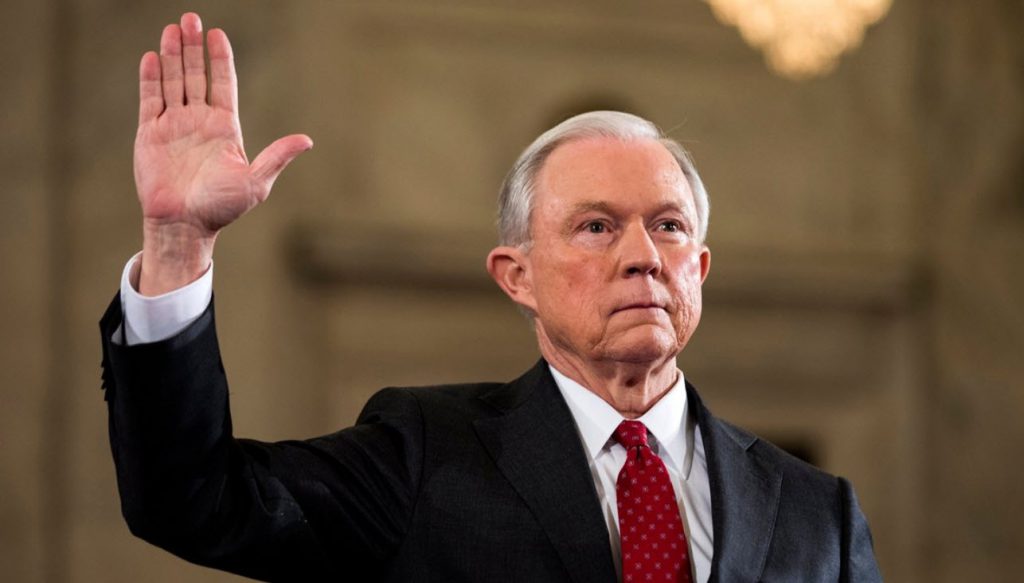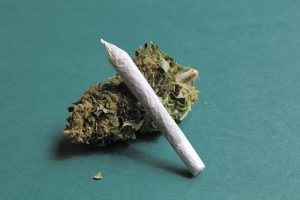
Marijuana legislation at the state level has been changing during the past two decades, beginning with California’s Proposition 215 in 1996. Thirty states and the District of Columbia have passed laws allowing the use of marijuana for medicinal purposes. Colorado and Washington became the first states to allow recreational marijuana use in 2013. Additionally, 22 states and the District of Columbia have lessened the penalties for marijuana-related offenses, commonly known as decriminalization.
In 2013, the Obama administration sought to clarify the role of prosecuting attorneys in relation to marijuana-related offenses with a memorandum published by Deputy Attorney General James A. Cole’s. In short, the memo said prosecutors could continue to fight the drug trade, yet if a state has legalized marijuana, they should leave those operating within that state to be governed by the state’s laws first, not the federal law.
On January 4, 2018, the Department of Justice’s Attorney, General Jeff Sessions released a new memorandum for all U.S. Attorneys summarizing the historic stance taken by Congress, as well as immediate direction on federal marijuana enforcement policy. Sessions noted, “Given the Department’s well-established general principles, previous nationwide guidance specific to marijuana enforcement is unnecessary and is rescinded, effective immediately.” Additionally, the memo said, “This return to the rule of law is also a return of trust and local control to federal prosecutors, who know where and how to deploy Justice Department resources most effectively to reduce violent crime, stem the tide of the drug crisis, and dismantle criminal gangs.”
Marijuana remains a Schedule I Controlled Substance, which means there is no accepted medical use in the United States, a lack of accepted safety for use under medical supervision, and a high potential for abuse.”
To learn more about drugs of abuse, visit our website.
 Your Privacy Choices
|
Privacy Notices
|
Terms
|
Language Assistance / Non-Discrimination Notice | Asistencia de Idiomas / Aviso de no Discriminación | 語言協助 / 不䈚視通知
Your Privacy Choices
|
Privacy Notices
|
Terms
|
Language Assistance / Non-Discrimination Notice | Asistencia de Idiomas / Aviso de no Discriminación | 語言協助 / 不䈚視通知



















Marijuana legislation at the state level has been changing during the past two decades, beginning with California’s Proposition 215 in 1996. Thirty states and the District of Columbia have passed laws allowing the use of marijuana for medicinal purposes. Colorado and Washington became the first states to allow recreational marijuana use in 2013. Additionally, 22 states and the District of Columbia have lessened the penalties for marijuana-related offenses, commonly known as decriminalization.
In 2013, the Obama administration sought to clarify the role of prosecuting attorneys in relation to marijuana-related offenses with a memorandum published by Deputy Attorney General James A. Cole’s. In short, the memo said prosecutors could continue to fight the drug trade, yet if a state has legalized marijuana, they should leave those operating within that state to be governed by the state’s laws first, not the federal law.
On January 4, 2018, the Department of Justice’s Attorney, General Jeff Sessions released a new memorandum for all U.S. Attorneys summarizing the historic stance taken by Congress, as well as immediate direction on federal marijuana enforcement policy. Sessions noted, “Given the Department’s well-established general principles, previous nationwide guidance specific to marijuana enforcement is unnecessary and is rescinded, effective immediately.” Additionally, the memo said, “This return to the rule of law is also a return of trust and local control to federal prosecutors, who know where and how to deploy Justice Department resources most effectively to reduce violent crime, stem the tide of the drug crisis, and dismantle criminal gangs.”
Marijuana remains a Schedule I Controlled Substance, which means there is no accepted medical use in the United States, a lack of accepted safety for use under medical supervision, and a high potential for abuse.”
To learn more about drugs of abuse, visit our website.